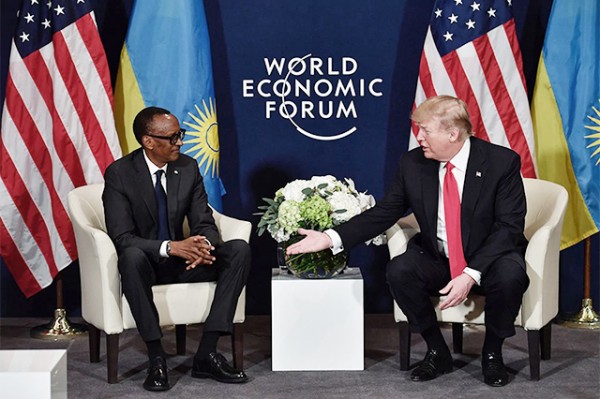
ICYMI: Rwanda Confirms Deal to Take U.S. Deportees Despite Backlash On Trump Deportation Policy

Rwanda has agreed to accept up to 250 migrants from the United States, part of a controversial deal struck with President Donald Trump’s administration as it accelerates mass deportation efforts under a sweeping immigration crackdown.
Government spokesperson Yolande Makolo confirmed to the BBC that the deportees, many of whom are not Rwandan nationals, will be offered workforce training, healthcare, and accommodation to help them restart their lives in the East African nation. However, she emphasised that Rwanda retains the right to approve each individual before resettlement.
While the White House has not officially commented on the Rwanda deal, the spokesperson noted that the administration is “constantly talking to countries willing to assist us in removing the illegal migrants that former president Joe Biden allowed into the US.”
Secretive Deals, Controversial Demands
The Rwanda agreement is just one part of a growing list of opaque deportation arrangements the Trump administration is pursuing across Africa, many of which have drawn international condemnation.
According to diplomatic sources and correspondence reviewed by POLITICO, Washington has been engaging in quiet, transactional diplomacy with governments in fragile or authoritarian states, including war-ravaged South Sudan and the repressive kingdom of Eswatini.
In South Sudan, authorities have already accepted several deportees, including individuals with criminal convictions. In exchange, officials in Juba have reportedly made a series of demands: lifting U.S. sanctions on senior officials, reversing visa restrictions imposed earlier this year by Secretary of State Marco Rubio, and reopening a critical U.S. dollar account at the New York Federal Reserve, essential for international financial transactions.
South Sudan’s government has also asked for Washington’s backing in pursuing its First Vice President, Riek Machar, who is currently under house arrest. This move could entangle the U.S. in the country’s volatile internal politics.
Rwanda’s Migrant Diplomacy
Rwanda, too, has experience in hosting migrants as part of international arrangements. Between 2019 and 2025, it received nearly 3,000 refugees and asylum seekers from Libya under a tripartite deal with the UN refugee agency and the African Union. Many were eventually resettled in other countries.
In 2022, Kigali also signed a high-profile deal with the UK to take in asylum seekers arriving via the English Channel. However, that scheme was formally scrapped last year by the incoming Labour government, despite the UK having already paid Rwanda £240 million ($310 million) and funded the construction of migrant housing facilities.
It remains unclear what will happen to those facilities, but some believe they may now be repurposed for the incoming U.S. deportees. However, Rwanda’s government continues to face criticism over its own human rights record and allegations of backing armed groups in neighbouring Democratic Republic of Congo, claims it denies. A ceasefire agreement between Rwanda and DR Congo was signed in Washington in June as part of a broader peace process.
While Rwanda maintains it can offer a safe environment for migrants, the opacity surrounding the terms of these deals, especially potential financial incentives or political concessions, has only fueled further scrutiny.
Read Also: Ghana’s Minister of Defence, Environment, 6 Others Confirmed Dead In Military Helicopter Crash’
How Tinubu’s Proposed Tax Reform Is Designed to Bleed Nigerians Dry
About The Author
Related Articles
Asake Sets New Billboard Afrobeats Record as Chart Presence Grows
Asake has further cemented his place as one of Afrobeats’ most dominant...
ByWest Africa WeeklyJanuary 29, 2026Nigerians Lament PayPal’s Return as Old Wounds Resurface
PayPal’s reentry into Nigeria through a partnership with local fintech company Paga...
ByWest Africa WeeklyJanuary 29, 2026Tanzania Eyes Gold Sales as Aid Declines and Infrastructure Needs Grow
Tanzania is weighing plans to sell part of its gold reserves to...
ByWest Africa WeeklyJanuary 29, 2026Mali Tightens Grip on Explosives Supply With New Majority Stake
The Malian government has taken majority ownership of a civil explosives manufacturing...
ByWest Africa WeeklyJanuary 29, 2026












Leave a comment